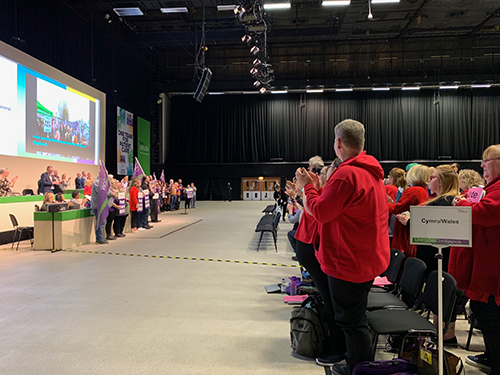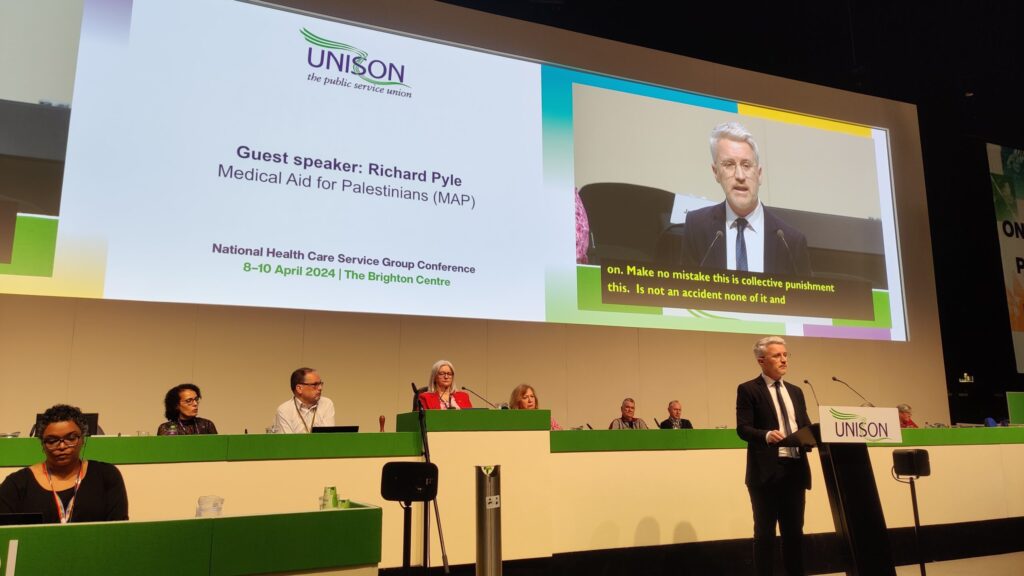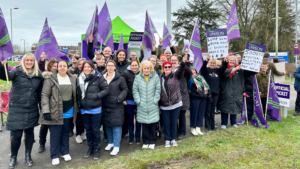There’s power in the union – particularly if that union is UNISON. That was the message at the heart of a speech this morning from general secretary Christina McAnea to UNISON’s national health service group conference in Brighton.
“Look at all you’ve achieved in the past 12 months”, she told delegates.
“Forty-two re-banding deals done across England and Scotland in our Pay Fair for Patient Care campaign. £70 million in back pay – and rising.
“A huge strike in Northern Ireland that forced politicians back into the Northern Ireland Assembly to sort out public sector pay – that’s the power of UNISON.”
Ms McAnea added that the union had live disputes in the South East, Eastern, East Midlands, Northern, North West, South West and London regions, together with live campaigns in Yorkshire and Humberside, West Midlands and Cymru/Wales.
“Our demands and action get results. We are transforming lives … That’s the power of UNISON.”
The big election year
“The Tories can go into the general election with a proud record to stand on. Forty brand new hospitals, a valued and appreciated workforce, NHS pay rises beyond your wildest dreams,” the general secretary quipped, to laughter from delegates.
More seriously, Ms McAnea stressed the need to get the Conservatives out of government and for Labour to replace them.
“While the Tories break promises and let down our most vulnerable in our society, UNISON says we can do better.”
Pointing out that UNISON has been campaigning for a National Social Care service, she said: “Until we fix the crisis in social care, we cannot fix our broken NHS.
“And when a National Care Service has been created – and I do believe it will be – we can look back together and say, ‘we did that – we were part of that’.
And Ms McAnea stressed that the workforce of the NHS – and of a future National Care Service – “should be given decent pay for a day’s work”.
There are also elections taking place in UNISON. Ballots for the service group elections open on 22 April and Ms McAnea urged delegates not only to vote themselves, but to return to their workplaces and persuade their fellow members to vote too.
Celebrating the power of the union

After a standing ovation, the union’s acting head of health, Helga Pile, introduced representatives of successful strikes in health from across the union as they came to the front of the hall to join Ms McAnea. They were joined live online from a picket line at James Cook Hospital in Middlesbrough, as conference rose to applaud and celebrate the power of UNISON.
The article Christina McAnea leads applause for successful UNISON strikers first appeared on the UNISON National site.

